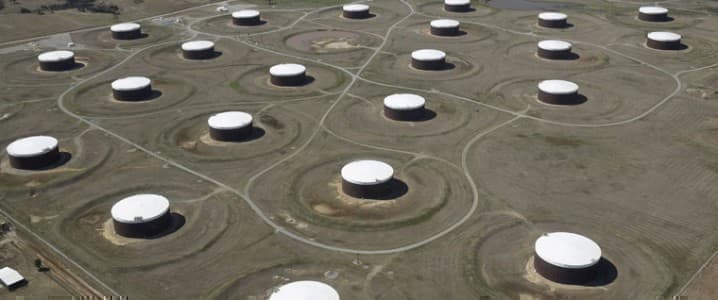The U.S. oil market is tightening as commercial crude inventories are declining at a fast clip and driving wider time spreads in the WTI Crude futures curve.
The curve is strengthening into backwardation, the state of the market signaling tighter supplies with the prices of the nearer futures contracts higher than those further out in time.
The premium of the nearest contract to those for later delivery has been widening in recent days, suggesting that immediate supply is tightening. The spread between the cash WTI and the November contract, for example, was $3.40 early on Friday. This is the widest premium of prompt prices to the four-month futures price since 2018, according to Bloomberg estimates.
The tighter prompt market reflects the continuous decline in U.S. commercial crude oil inventories, the relatively flat domestic crude oil production, and the relatively high U.S. oil exports despite the narrow WTI discount to Brent.
U.S. commercial crude inventories fell by 6.7 million barrels for the week to June 25, as per Energy Information Administration data. This was the sixth consecutive weekly drawdown in crude stockpiles.
Total commercial crude inventories at 452.3 million barrels are now 15.2 percent lower than in the same week last year. They are also 3.4 percent lower compared to this time two years ago, before the pandemic.
Inventories at Cushing, Oklahoma – the designated delivery point for NYMEX crude oil futures contracts – are also falling, further boosting the rally in the futures market. Crude stocks at Cushing fell by 1.5 million barrels in the week to June 25 to stand at 40.3 million barrels. This was an 11.7-percent decline compared to this time last year and a drop of 23.3 percent compared to the same week in 2019.
Refineries are also increasing run rates, now operating at 92.9 percent capacity, with those in the Midwest operating at 98.2 percent of their operable capacity. This is higher even compared to the 97.4-percent capacity utilization at this time of the year in the pre-COVID 2019.
By Tsvetana Paraskova for Oilprice.com
More Top Reads From Oilprice.com:















